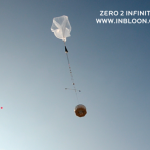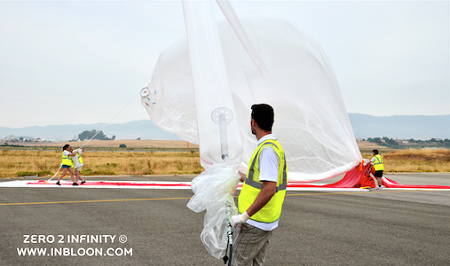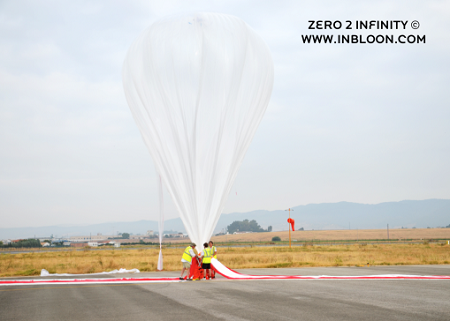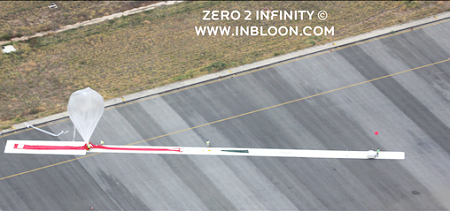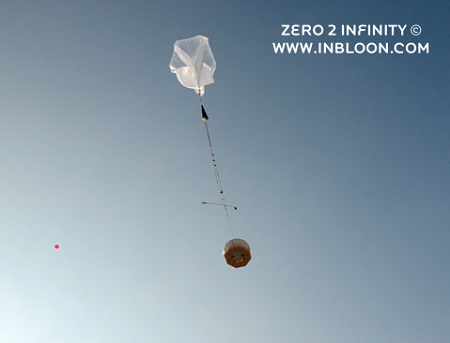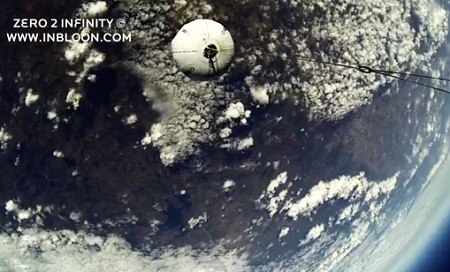Zero 2 Infinity (02I), a Spanish private aerospace firm that is developing balloon-based technologies to enable cost-efficient access to near-space and to promote space tourism in the near future, successfully performed another balloon launch.
This launch was made from the Cordoba Airport in the Andalucía region in southern Spain. Apparently this is the first time that the recently renewed airport is used for a stratospheric balloon flight.
As with the 2012 flight from León, the launch operations were orchestrated by Steven Peterzén of the ISTAR Group, a company headquartered in Bend, Oregon which provides support to balloon operations for many programs around the globe.
The balloon was launched from the tarmac of the airport, close to the control tower, under perfect meteorological conditions. After a normal ascent phase, the balloon reached a float altitude of 27 kilometers (16.8 mi), where it remained for about 50 minutes, while drifting slowly to the north crossing over the Sierra Morena range. After a total time flight of 3 hours and 10 minutes the mission ended and the payload was recovered by Peterzén’s team near the small town of Pozoblanco, about 60 km (37 mi) north of Cordoba.
Besides the fact that the entire operation served as training for the 02I team, the main objective of the mission was to test the behavior, strength and suitability of an inflatable pressurized payload capsule for microbloon. The capsule was designed and manufactured by Thin Red Line Aerospace (TRLA), a Canadian company known for providing the inflatable pressure hulls for the Bigelow Aerospace Genesis orbital craft. The capsule developed by TRLA was based entirely on their proprietary Ultra High Performance Vessel (UHPV) architecture which was developed largely in the framework of the NASA space exploration program.
According to the press release, the capsule performed flawlessly during the flight. “…Inflatable structures are unbelievably efficient compared to advanced materials such as Carbon Fiber or light alloys. They hold promise of safer, more affordable applications in Near Space and beyond…”, said José Mariano López-Urdiales, CEO of the Spanish company.
Video courtesy of zero2infinity.com
Source: stratocat.com.ar

